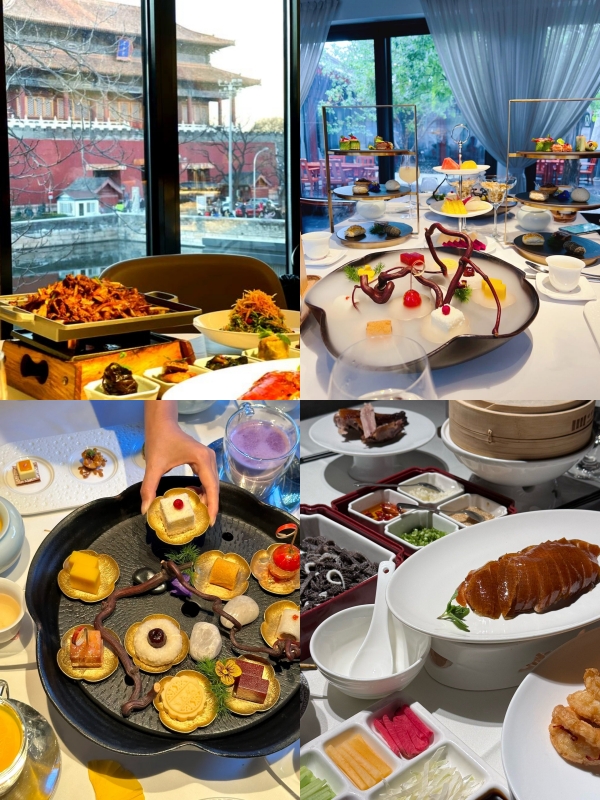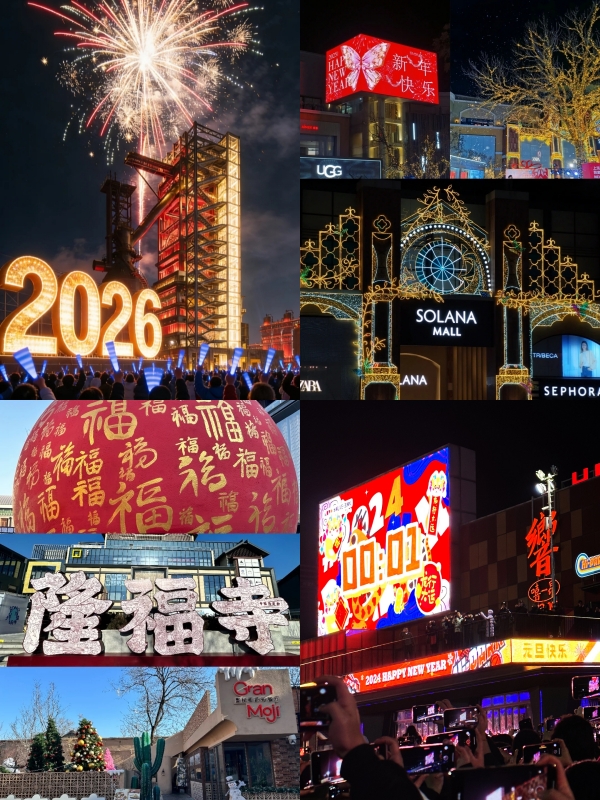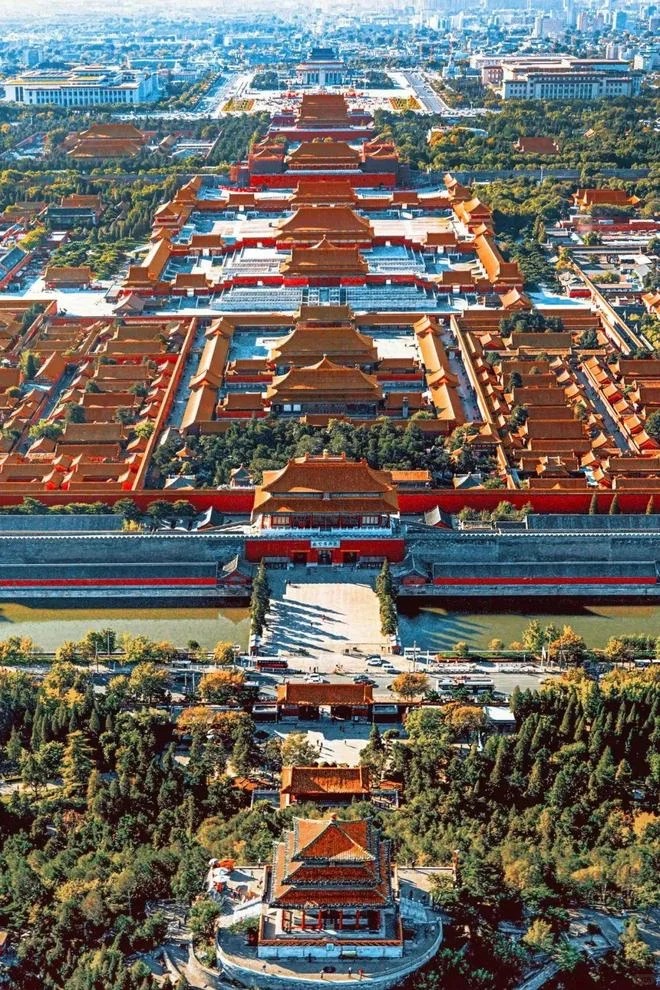Travellers frequently come away with the impression that beijing is simply palaces and walls, but the city is full of odd corners to stumble upon. Think of hidden bars that require a secret code, museums that display medieval torture instruments or lakes that freeze into winter wonderlands. If you’re interested, unusual things to do in Beijing can be more memorable than any famous sites. The joy is in walking into a hutong and having no idea what lies behind the next wooden gate. You may happen on a café lit with paper lanterns or a tiny gallery full of shadow puppets. They are the surprises that, for many visitors, can offer a more personal experience than a crowded tourist spot. This little jaunt is all about following the off-the-beaten-track side of Beijing and letting the city just surprise you at every corner.Explore Hidden Hutong Corners
Explore Hidden Hutong Corners
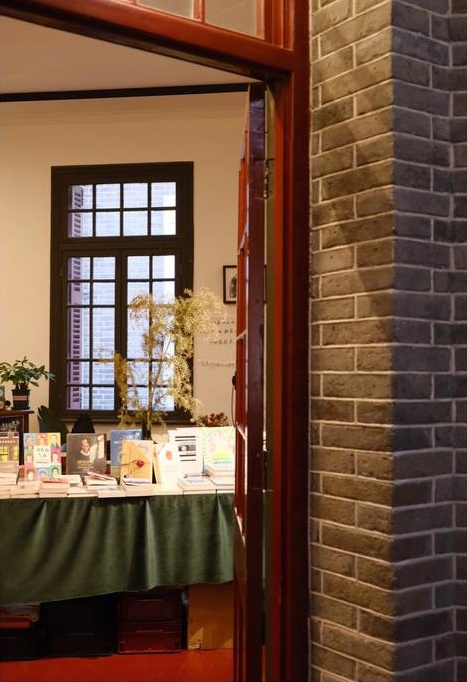
Indie Bookstores
Discover Hutong Cafés and Independent Bookstores
In the narrow lanes of Beijing’s hutongs, you can find cafés glowing with lanterns as dusk falls. The smell of fresh coffee mixes with roasted chestnuts from a nearby street cart, creating a cozy welcome. For travelers searching for unusual things to do in Beijing, stopping here feels like slowing down the rhythm of the city.
One evening I followed a small chalkboard sign and ended up in a hutong café filled with plants and mismatched chairs. Students typed quietly while an old man sipped tea at the corner table. It was far from the tourist buzz, and I felt like I had stepped into someone’s living room. If you step outside again, you might stumble upon an independent bookstore. Shelves hold dusty Chinese classics alongside quirky imported magazines. Bicycles pass by the narrow lane, and the sound of mahjong tiles drifts from a nearby courtyard.
Many cafés in hutongs open after 10 a.m. and stay busy until late evening. A coffee costs 25–40 RMB, and spots like Nanluoguxiang or Shichahai on Beijing Subway Line 6 are the easiest to access. Locations can be checked with Dianping or RED, where locals post reviews and photos. Most cafés have English menus, so ordering is simple.
Climb Rooftop Bars for Night Views
Rooftop bars in the hutongs stay hidden behind wooden doors and narrow staircases. Once you climb up, tiled rooftops stretch below, while neon towers glow in the distance. The mix of old and new is striking, and it’s a fresh angle for unusual things to do in Beijing.
I once followed a friend to a rooftop near Drum Tower. The climb felt secretive, with uneven steps and faint music drifting upward. When we reached the top, the view opened like a stage: the rooftops below, the modern skyline shimmering ahead. It felt like the city was telling two stories at once.
Most bars open after 7 p.m. and cocktails run 60–100 RMB. You’ll find many rooftops near Drum Tower and Sanlitun, both accessible on Beijing Subway Line 2. Some venues host DJ nights, with entry tickets around 80–150 RMB available on CTrip or at the door. Arriving before 9 p.m. secures better seats and a calmer vibe.
Visit Hutong Art Studios and Niche Exhibitions
Hutongs today hide more than just family homes; many have transformed into small art studios where creativity thrives. Inside, you’ll see pottery wheels spinning, calligraphy scrolls drying, and canvases stacked against old brick walls. For travelers seeking unusual things to do in Beijing, joining a mask-painting or clay workshop feels immersive and personal.
Some studios also open their doors for niche exhibitions that highlight unique crafts and stories. You might step into a space filled with recycled-metal sculptures or photography capturing daily hutong life. I remember visiting a shadow puppet show where the artist let me handle a carved puppet backstage. The detail in the wood and the pride in his voice made the tradition come alive.
Workshops in hutong studios usually last one to two hours and cost 80–200 RMB. Areas like Dashilan and Wudaoying, near Beijing Subway Line 7 and Line 5, host many options. Booking is possible via hotel concierge desks or CTrip for special events. Niche exhibits often charge 20–50 RMB and may run only for short periods.
Unlock Quirky Museums and Offbeat Spaces
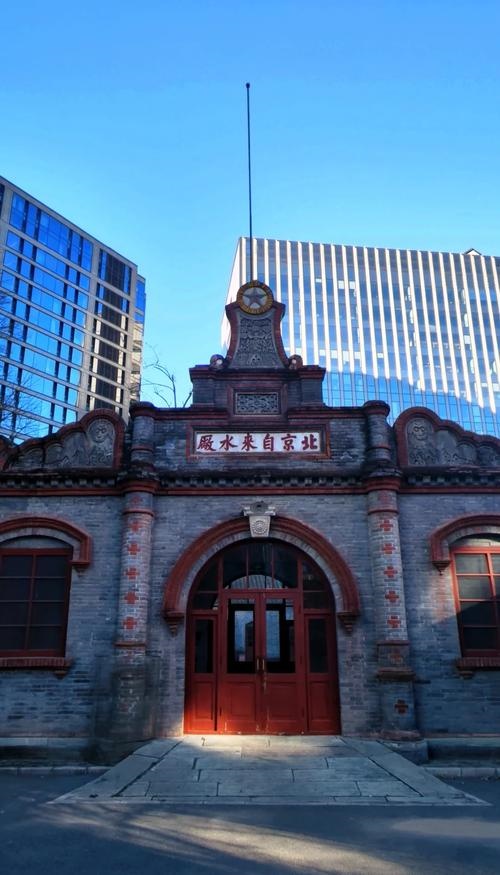
Beijing Water Supply Museum
Tour Unusual Museums
Beijing’s museums reach far beyond the run-of-the-mill art halls. One of the strangest things to do in Beijing is the Beijing Waterworks Museum. Here, you can take a look at old blueprints, rusty pumps and tales of how the city grew up around water. The displays are modest, but each room feels like a secret time capsule of daily life from decades past.
I once spent an afternoon here and was struck by how quiet it was inside. With no crowds, I had room to stop and imagine how families had once depended on these systems. The faded photographs and displayed tools gave me a more human vision of Beijing’s development.
Normal opening hours for the Beijing Waterworks Museum is 9:00-16:00 with a ticket price of around RMB 10-20. It's just short walk from Chaoyangmen Station on the Beijing Subway Line 2, and tickets are available for purchase at the gate. Visiting in the morning is a calmer experience.
Wander Through Factory Art Zones
Sterile government courtyard complexes like those in Beijing have been converted into lively art neighborhoods. It’s another of the quirky things to do in Beijing-where the grey machinery has been replaced by graffiti walls and bold murals. Walking through these wide corridors, you’ll find galleries home to experimental shows and pop‑ups.
I once walked into a warehouse where artists were welding metal into abstract figures. The air was thick with the stench of paint, the sound of music filling the air. I had the feeling of history and creativity colliding.
The majority of galleries in factory art zones are open from 10 a.m. to 6 p.m., and many do not have an entry fee. There is a popular hub, the 798 Art Zone, at Beijing Subway Line 14’s Wangjing South Station. Near Caochangdi, the smaller converted factories are accessible by local bus. CTrip highlights major exhibitions; flyers for events are ubiquitous in nearby cafes.
Experience Rare Theme Exhibits
Some of the city’s quirkiest things to do in Beijing concern niche exhibitions. You’ll locate the China Stamp Museum with its rare collections from ancient dynasties, or a hall filled with dainty shadow puppets. They’re quiet, almost meditative, and allow you to investigate culture on your own time.
I attended a puppet show in a secret den off Ping’anli once. At the back of the showroom the artist asked me to grasp a hand-carved puppet and I was shocked by the heft of the wood. It was his ardor that made the tradition feel vivid.
Most information town exhibits are open from 9 a.m. to 5 p.m., for 20–50 RMB. The China Stamp Museum is close to Jianguomen Station on Beijing Subway Line 2; puppet shows are performed in the Ping’anli or Liulichang areas, both accessible by subway.
Experience Nighttime Adventures
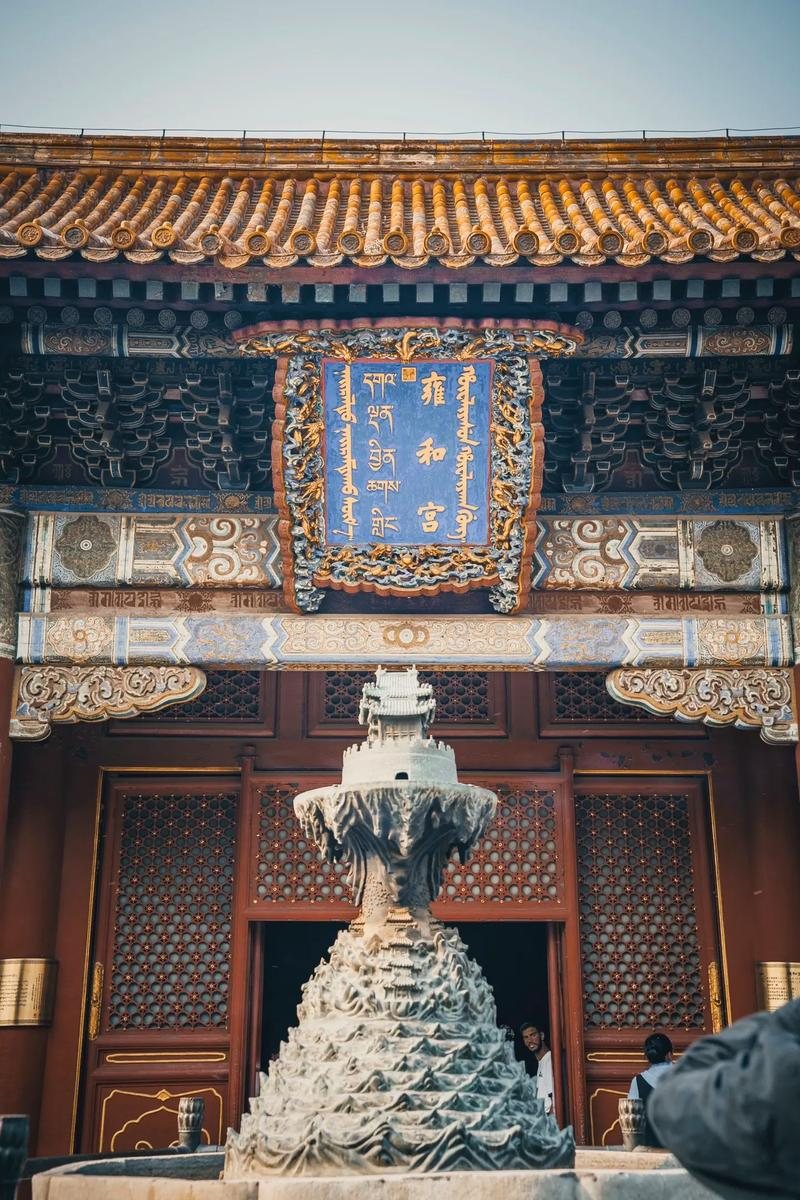
Yonghe Lama Temple
Enter Secret Bars and Underground Gigs
Beijing’s speakeasies are thrilling because they hide in plain sight. Many sit behind unmarked doors or down staircases, and some need a whispered password. For anyone curious about unusual things to do in Beijing, stepping inside for a creative cocktail feels like solving a secret puzzle.
I once followed a friend into a spot disguised as a noodle shop. The narrow hallway opened into a red-lit bar where a local band tuned their guitars. The music was raw, the energy electric, and I felt like we had uncovered a hidden pulse of the city.
Most speakeasies open after 9 p.m., with cocktails priced at 60–100 RMB. Look for them around Gulou or Sanlitun. Use Douban to track underground gigs or SmartShanghai for English-friendly bar reviews. Tickets for live shows often cost 50–120 RMB, bookable on Douban or at the door.
Stroll Temples and Lantern Markets
Temples at night show Beijing’s spiritual side. Soft lights highlight curved roofs, incense drifts in the cool evening air, and the atmosphere feels timeless. For travelers, wandering here after dark is one of the most peaceful unusual things to do in Beijing.
I once joined a friend near Yonghe Temple at dusk. Bells rang slowly, and shadows stretched across the courtyard. Afterward, we walked into a lantern market where kids carried glowing paper fish and vendors sold steaming skewers for 10 RMB each.
To visit, take Beijing Subway Line 2 or Line 5 to Yonghe Temple Station. Markets usually start after 6 p.m. and last until late evening. Check Baidu Maps for smaller ones and WeChat groups for seasonal events.
Watch Outdoor Movies on Summer Nights
Outdoor films turn Beijing’s summer nights into shared memories. Courtyards transform into cinemas with a white sheet hung against a wall. Locals gather on bamboo stools, chatting and eating fruit before the film begins. For visitors, joining this scene is an unforgettable version of unusual things to do in Beijing.
I once stumbled across a screening near Drum Tower. Families passed around watermelon slices, and children ran between chairs. The movie was old and grainy, but the laughter and community spirit made it magical.
Most screenings happen in July and August, starting around 8 p.m.. They are usually free, though some ask for 10–20 RMB donations. Check Xiaohongshu for announcements or ask hotel staff for local tips. Locations vary, often in hutongs or small parks.
Not sure how to spend your evenings in Beijing? Just dive into Things to Do in Beijing at Night: Food, Lights, and Hidden Gems (2025 Guide)
Enjoy Seasonal Oddities
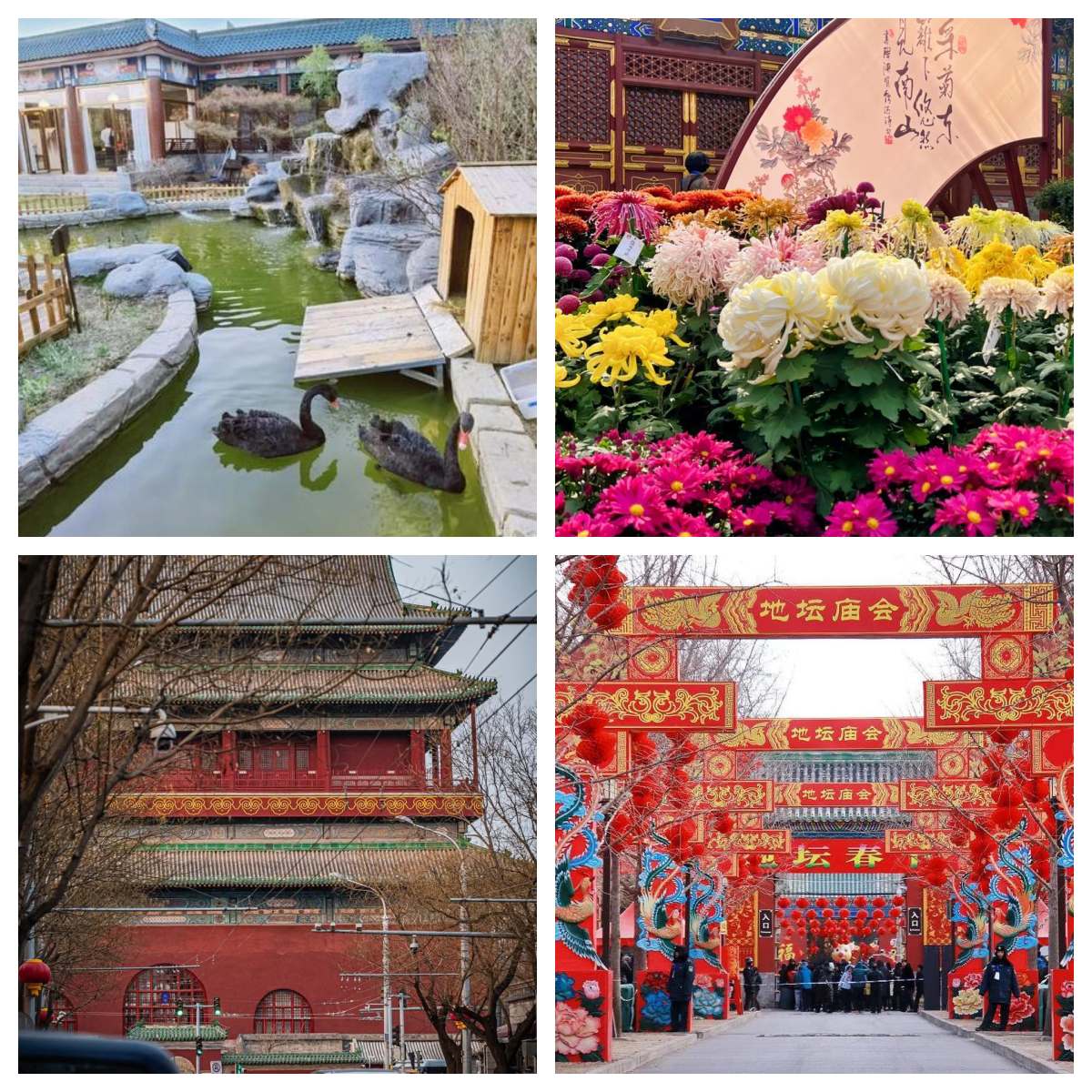
Seasonal Oddities
Celebrate Spring with Temple Fairs
Beijing springs to life with temple fairs at spots like Ditan Park and Dongyue Temple. Dragon dances snake around red stalls, the scent of roasted nuts fills the air and folk shows have the throngs laughing. Tradition and joy are mixed directly here for the traveler: these fairs are one of the most offbeat things to do in Beijing. I remember the time we visited during Lunar New Year, drums resounding throughout, when it seemed as if the entire city were celebrating together.
Chill out this summer with midnight cycle ride
Hot summer nights cool off once the sun goes down and sizzle as you pedal through the midnight hour. Riding past the Drum Tower or zipping on Chang’an Avenue under neon lights offers a fresh perspective of the city. It’s peaceful, it’s breezy, it’s one of those “huh, that’s an unusual thing to do in Beijing that most everyday visitors never do” options — I once pedaled around Shichahai (lanterns reflecting on the water), and it was as though Beijing was mine and mine alone.
Enjoy Autumn with Chrysanthemum Shows
In the fall, the crisp sky and blooming chrysanthemums come. Beihai Park and the Beijing Botanical Garden are filled with flowers formed into arches and towers, linking flowers with centuries of poetry. Walking through Beihai in October, the petals lit from within, felt to me like I was stepping into a painting. It’s a mellow time to witness Beijing’s softer side.
It’s Winter, so warm up in Hot Springs
Winter in Beijing is biting and bitter, but hot springs in Changping and Xiaotangshan steam between snowy hills. There are few more calming but unusual things to do in Beijing than this, sliding into a warm pool as snowflakes gently fall. Once I soaked under the stars outside with snow melting on my skin, time stretching like a rubber band. Cool weather never stopped the city from having its own uniqueshine.
Travel Tips for Unusual Beijing
What to Wear
The seasons change fast in Beijing, so clothes count. In spring and fall you should have a light jacket, in summer it is quite muggy and one needs breezy shirts. The winters are cold, so you wear coats and gloves. In case you forget, Wudaoying Hutong boutiques open around 11 a.m., and the goods cost 80-300 RMB, near Beijing Subway Line 5’s Beixinqiao Station.
Where to Eat
Sampling street eats is an indelible part of weird things to do in Beijing. Beyond Peking Duck, late-night jianbing or grilled scorpions bring the fun. There is also Wangfujing Snack Street, located near to Beijing Subway Line 1, which is open late and has snacks in the 5-15 RMB range. Hipster hutong cafés from 25–40 RMB, and RED is great for searching out hidden spots.
How to Get Around
Weird things to do in Beijing are just a train ride away on the Beijing Subway, which operates from 5 a.m. until 11 p.m. and fares begin as low as 3 RMB. Nanluoguxiang is on Line 6 and 798 Art Zone is on Line 14. Any time after midnight taxis and DiDi rides tend to be very reliable. Make sure to check Moji Weather, as sudden rain or snow can alter plans. A 3C-certified power is practical to keep long days of adventure powered up.
If you want the best things to see in Beijing, start here with Top Beijing Travel Tips: What to Avoid and What to See
FAQs: Guide to the Unusual and Offbeat Things to Do in Beijing
Q: How can I discover Beijing’s underground tea houses?
A: Tea houses in the recesses of hutongs offer a peaceful escape from the bustle of the city, and are among the most unique things to do in Beijing. Behind wooden gates, residents drink jasmine tea or play cards, and that time I met up with a friend at a tiny place near Ditan Park where the proprietor poured tea slowly and told stories of old. Most tea houses are open from 10 a.m. to 10 p.m., and the pots cost 40–80 RMB. The Wudaoying Hutong and Yonghe Temple areas on Line 5 are easy to get to and reservations can be booked via Dianping.
Q: Where is the key to underground music events?
A: When it comes to the bar circuit in Gulou or Yonghe Temple, the underground gigs that permeates them can be deafening, raw and unforgettable. Tiny basements house indie bands, and I once crammed into a bar where a band played until 1 a.m., the room vibrating with life. Shows are usually after 8 p.m., and tickets are usually 50–120 RMB. Schedules are posted by Douban and TimeOut Beijing. Most sites are near Beijing Subway Line 2 or Line 8, and after 11 p.m., it’s just as well to hail a Didi or taxi back.
Q: Where to buy offbeat souvenirs?
A: Scavenger quirky trinkets For a fun way to stay out of the beaten path, go hunting for weird and wonderful souvenirs in Beijing. There are vintage postcards and old badges at the Panjiayuan Market, and Wudaoying Hutong is packed with indie jewelry shops. I was once the negotiating part for a painted scroll and got to listen to its life story from the seller. Markets: Open from 9 a.m. to 5 p.m., prices from 20 RMB to 300 RMB. 灯 of course Panjiayuan Market is not the same as Wudaoying Hutong (Panjiayuan Market is on line 10 and Wudaoying is on line 5)
Q: How can I couple food with an unusual vista?
A: One of the most effortless strange things to do in Beijing is to eat while sightseeing. Take a hutong food tour to sample jianbing and other skewers before sipping craft beer in secret courtyards. I once tagged along with a group who met for the last stop of the night at dumplings in someone’s private home, and the host was so warm and friendly that it left quite the impression. Tours, which are priced 200 to 400 RMB, are three to four hours long and usually begin near Dongsi Station on Line 5 or Nanluoguxiang on Line 6.
Q: Hola can I experience the "old games" at the hutongs?
A: When you play games with the locals, you get one of the warmest unusual things to do in Beijing. In Jingshan Park, neighbors come to play chess or kick jianzi; I once joined a group of older men who laughed through my every mistake. Entry is 2–10 RMB, mornings are ideal, and Jingshan Park is a stop of Beijing Subway Line 8 by the Forbidden City.
Q: What’s the best way for me to discover Beijing’s best street art?
A: Search for street art A little bit of street art hunting reveals an edgier side to Beijing and some of the quirky things you can do within the city. The 798 Art Zone is home to murals and galleries, and colorful paintings on old walls are tucked into hutong alleys. I saw a dragon mural on a dilapidated door once. Most 798 galleries are open from 10 a.m. to 6 p.m.; entrance is free, while featured shows usually cost 30–50 RMB. Opt for Line 14 to Wangjing South — or Didi, for that matter.
